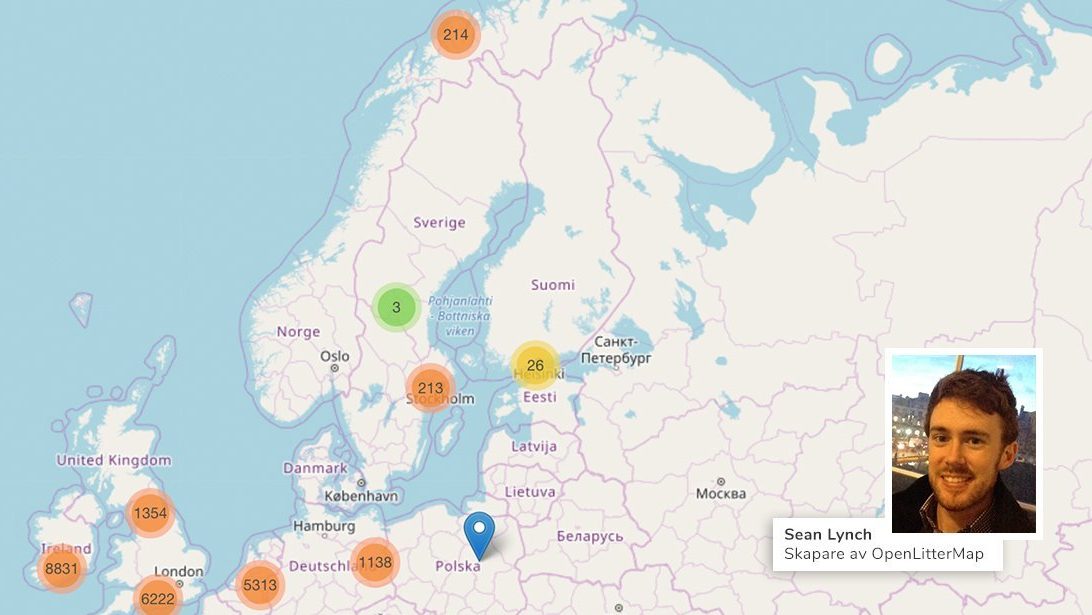A site and app where anyone can register information about litter enhances science and possible rational action. The key to success is the use of open-data and that individual citizens become data sources.
Is it really smart to work on a fundamental idea potentially disrupting organisations or even the whole society, or is it better to focus on a specific application? The clear answer is to do both at the same time.
This is OpenLitterMap an excellent example of. Both a web/phone application (both iOS and Android) where anyone can publish or look at data about litter around the entire world. The site/app gives access to perpiscous and detailed information about litter.
The data-input itself is simple, geographical information is automatically registered from the mobile device that is used. Maybe the biggest benefit of Openlittermap is that individual citizens stand for the “data-collection”. They become some kind of “citizen-scientists”.
At the time of writing – for example – we can see that there are 64 cigarette butts lying around the corner between Kungsgatan and Sveavägen. At least it was there earlier this year on the 18th of June.
This application, litter-inventory, is, of course, good in many ways. We can leave the aspects of environment and aesthetic factors to that point because they are obvious. That litter data, sorry, data of litter is managed as open-data is a key-factor for laying out the path for more important advantages.
The usage of open-data on the site is defined like this – OpenLitterMap data is open-data, this means anyone can download the data for free and use it without permission. One example is that the municipality can come and take away the trash. Scientists can come up with innovative solutions to improve both policies and services regarding waste management.
Or to express it differently – “OpenLitterMap makes it possible for you to become an open citizen scientist. “ In addition, companies can use the open-data from OpenLittermap. Maybe it would be a good tip to tourists that like Sweden because it is so clean and organized here: Don’t go this street if you want to enjoy the well-cleaned streets of Sweden!
Sean Lynch who created OpenLittermap decided to work with open-data because of strategic reasons. This is how he explains this during the interview.
– To try selling the idea to a government or some other public actor would be a waste of time. They are so focused on their own organizations that sometimes the bigger picture can’t tag along, says Sean Lynch.
He explains further that when companies, activists, citizens in general, universities and government has equal access to data – that is when our knowledge can increase. Sean thinks that this is how science should be driven and with that perspective he certainly has a point.
– The key to success is to share data. There are other litter maps that are more popular than mine, but at this point in time – they don’t share the data. People look at the maps but don’t stop to consider who has access to the underlying data, that could generate knowledge and create new solutions.

